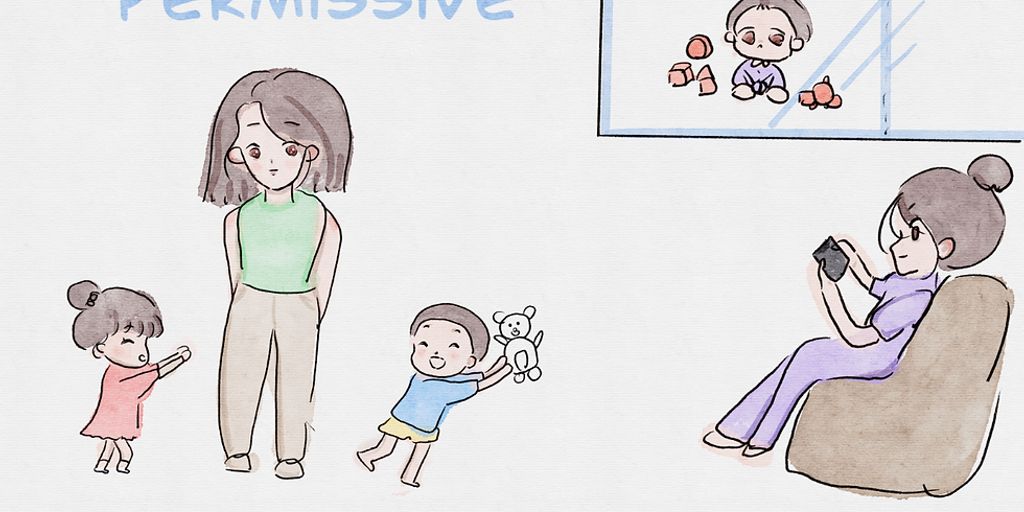
Parenting is a journey filled with joy, challenges, and endless questions. One of the most important questions parents ask is about their parenting style. With so many different approaches, it can be tough to know which one is best for your family. This article will help you understand various parenting styles and guide you in choosing the one that fits your family’s needs.
Key Takeaways
- There are different parenting styles, each with its own strengths and weaknesses.
- It’s important to be flexible and adapt your parenting style to suit your child’s needs.
- No single parenting style is perfect for all families; find what works best for yours.
- Understanding various parenting styles can help you make informed decisions.
- Your parenting style can impact your child’s emotional, social, and academic development.
The Authoritative Parenting Style
Characteristics of Authoritative Parenting
Authoritative parenting is a supportive and nurturing style that still includes firm boundary-setting. Parents who follow this style are highly responsive, showing emotional warmth, affection, and attunement. They provide guidance, set rules, and encourage independence while maintaining open communication and nurturing a positive parent-child relationship.
Benefits of Authoritative Parenting
Authoritative parenting is often considered the ideal style for its combination of warmth and flexibility. Children of authoritative parents know what is expected of them. Their parents explain reasons for the rules and consequences for breaking them. Parents also listen to their child’s opinions, but the parent remains the ultimate decision maker.
Challenges of Authoritative Parenting
While authoritative parenting has many benefits, it also comes with challenges. Balancing warmth and discipline can be difficult. Parents must be consistent in their rules and expectations, which requires time and effort. Additionally, open communication means parents need to be good listeners and negotiators, which can be demanding.
If you believe in creating a nurturing yet disciplined environment where your children feel heard and valued, you’re likely practicing an authoritative parenting style.
The Permissive Parenting Style
Characteristics of Permissive Parenting
Permissive parenting is marked by a high level of warmth and indulgence. Parents who follow this style often avoid setting strict rules and boundaries, allowing their children a great deal of freedom and autonomy. They prioritize their child’s happiness and often aim to be their child’s friend rather than an authority figure. This lenient approach can result in a relaxed household environment.
Benefits of Permissive Parenting
One of the main benefits of permissive parenting is the strong emotional bond that can develop between parent and child. Children often feel very loved and supported. This style can also encourage creativity and independence, as children are given the freedom to explore and make their own choices.
Challenges of Permissive Parenting
However, permissive parenting is not without its challenges. The lack of structure and discipline can sometimes lead to behavioral issues. Children may struggle with self-control and may have difficulty following rules outside the home. Additionally, while permissive parenting emphasizes responsiveness without demand, it can sometimes result in children feeling entitled or lacking in responsibility.
It’s important to note that gentle parenting doesn’t mean permissive parenting. Gentle parenting is an authoritative style—a balanced approach that is both firm and kind and makes space for healthy, age-appropriate boundaries.
The Authoritarian Parenting Style
Characteristics of Authoritarian Parenting
Authoritarian parents are known for their strict rules and high expectations. They often demand obedience and discipline, using punitive measures to enforce their rules. This style is highly structured and rigid, with parents expecting their children to follow established guidelines without question. Emotional support and warmth may be lacking in this approach.
Benefits of Authoritarian Parenting
While this style can seem harsh, it does have some benefits. Children raised in authoritarian households often understand the importance of rules and discipline. They may also perform well in structured environments where clear expectations are set. Consistency in rules can provide a sense of security for some children.
Challenges of Authoritarian Parenting
However, there are significant challenges associated with this style. The lack of emotional support can lead to issues with self-esteem and emotional regulation. Children might also develop fear and anxiety rather than genuine respect for authority. Additionally, this approach can stifle a child’s independence and hinder their ability to think for themselves.
It’s important to find a balance between structure and emotional support to foster a healthy parent-child relationship.
The Uninvolved Parenting Style

The uninvolved parenting style, also known as neglectful parenting, is marked by a lack of emotional involvement and responsiveness from parents. These parents may provide for their child’s basic needs, but they are often emotionally distant and may not actively participate in their child’s upbringing. This style is sometimes referred to as neglectful parenting.
Characteristics of Uninvolved Parenting
Uninvolved parents are generally detached and disengaged from their child’s life. They may be indifferent, neglectful, or simply too overwhelmed with their own issues to focus on their child’s needs. Other characteristics of the uninvolved parenting style include:
- Lack of emotional support and nurturing.
- Limited guidance and supervision.
- Minimal involvement in the child’s education and extracurricular activities.
- Inconsistent or absent discipline.
- Lack of responsiveness to the child’s emotional cues and needs.
Effects on Child Development
Children raised by uninvolved parents often face significant challenges. They may struggle with low self-esteem, poor academic performance, and difficulty forming healthy relationships. Parenting styles are associated with different child outcomes, and the uninvolved style is particularly detrimental. These children may also exhibit behavioral problems and have a higher risk of mental health issues.
How to Avoid Uninvolved Parenting
To avoid falling into the uninvolved parenting style, it’s important to stay engaged and connected with your child. Here are some steps you can take:
- Make time for regular one-on-one interactions with your child.
- Show interest in their activities and schoolwork.
- Provide consistent emotional support and nurturing.
- Set clear rules and expectations, and follow through with discipline when necessary.
- Seek professional guidance if you are struggling with your own issues that may affect your ability to parent effectively.
While some parents may lean towards permissive, authoritarian, or authoritative approaches, a fourth style stands out as particularly detrimental. Uninvolved parenting can have long-lasting negative effects on a child’s development, so it’s crucial to stay engaged and responsive to your child’s needs.
Blending Different Parenting Styles
Finding a Balance
Blending different parenting styles means taking the best parts of each style to fit your family’s needs. No single style works for every situation or child. Parents can mix techniques from authoritative, permissive, and authoritarian styles. For example, you might use positive reinforcement from the authoritative style and open communication from the permissive style.
Adapting to Your Child’s Needs
Every child is unique, and their needs can change over time. By blending styles, you can adapt to these changes. This approach helps you stay flexible and open-minded. It also allows you to support your child’s growth in different areas, like emotional and social skills.
Common Pitfalls to Avoid
When blending styles, it’s important to stay consistent. Inconsistency can confuse your child and make it hard for them to understand expectations. Also, avoid leaning too heavily on one style, as this can create imbalance. Remember, the goal is to create a harmonious environment that supports your child’s development.
Blending parenting styles can be a valuable tool in raising happy, confident, and resilient children. It encourages individuality and fosters healthy communication within the family.
Impact of Parenting Styles on Child Development
Emotional Development
Parenting styles have a direct impact on a child’s emotional growth. Children raised in supportive environments tend to develop better emotional regulation. On the other hand, those in less nurturing settings may struggle with self-esteem and emotional control.
Social Skills
The way parents interact with their children can shape their social abilities. Kids from authoritative homes often have strong social skills, while those from authoritarian or uninvolved backgrounds might find it harder to form healthy relationships.
Academic Performance
A child’s academic success can also be influenced by their home environment. Supportive and structured parenting often leads to better school performance. Conversely, permissive or uninvolved parenting might result in lower academic achievements.
Understanding how parenting styles can affect your child is crucial for making informed decisions about your approach to raising them.
Choosing the Right Parenting Style for Your Family
Assessing Your Family’s Needs
Choosing the right parenting style starts with understanding your family’s unique needs. Every family is different, and what works for one may not work for another. Consider your child’s temperament, your own personality, and your family’s daily routines. Reflect on how you handle stress and conflict, and think about what kind of environment you want to create at home.
Aligning with Your Values
Your parenting style should align with your core values and beliefs. Ask yourself what is most important to you as a parent. Is it fostering independence, ensuring discipline, or nurturing emotional well-being? Finding the right parenting style involves balancing these values with practical approaches that fit your family’s lifestyle.
Seeking Professional Guidance
Sometimes, it can be helpful to seek advice from professionals. Child psychologists, family therapists, and parenting coaches can provide valuable insights and strategies. They can help you understand the different parenting styles and how they might work for your family. Remember, finding your parenting style is a dynamic and evolving process. It’s essential to remain open-minded, seek support when needed, and prioritize the well-being and happiness of your child as you navigate the rewarding journey of parenthood.
Remember, finding your parenting style is a dynamic and evolving process. It’s essential to remain open-minded, seek support when needed, and prioritize the well-being and happiness of your child as you navigate the rewarding journey of parenthood.
Conclusion
In the end, there’s no one-size-fits-all answer to parenting. Each family is unique, and what works for one might not work for another. It’s important to understand the different parenting styles and see which parts resonate with you. Remember, it’s okay to mix and match different approaches to find what suits your family best. Keep an open mind, seek help when needed, and always focus on your child’s happiness and well-being. Parenting is a journey, and it’s all about learning and growing together.
Frequently Asked Questions
What is the authoritative parenting style?
The authoritative parenting style is known for being both responsive and demanding. Parents set clear rules but are also supportive and open to communication.
What are the benefits of permissive parenting?
Permissive parenting can lead to children who are very creative and have high self-esteem. These parents are loving and nurturing, which can create a strong bond with their children.
How does authoritarian parenting affect children?
Authoritarian parenting, which is strict and less responsive, can lead to children who are obedient but may also have lower self-esteem and struggle with social skills.
What are the signs of uninvolved parenting?
Uninvolved parenting is characterized by a lack of responsiveness to a child’s needs. Parents may be detached or indifferent, providing little guidance or attention.
Can parenting styles be mixed?
Yes, many families find that blending different parenting styles works best. It’s important to adapt to your child’s needs and find a balance that suits your family.
How do parenting styles impact child development?
Parenting styles can affect a child’s emotional development, social skills, and academic performance. The right style can help children grow into well-rounded individuals.






